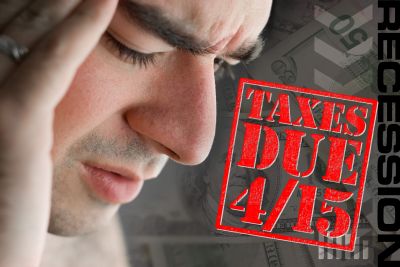What to Do When You Need Money and Time Is Tight

There are moments when things break down, bills stack up, or plans fall through—right when you’re already stretched thin. It’s hard to think clearly when something urgent needs sorting and the bank balance isn’t looking great. That pressure can feel heavy, especially if time is short and you’re unsure what to do first.
The good news is, you’re not alone—and you’re not out of options. There are steps you can take right away that can relieve stress and help you move forward. Here are some practical, fast-acting ideas to consider when time and money are both in short supply.
Assess Your Financial Situation Honestly
Start by getting a full picture of your current finances. It might initially feel uncomfortable, but knowing where you stand helps you make better choices.
Write down your income, essential bills, upcoming expenses, and any outstanding debts. Then, compare what’s coming in and what’s going out.
This process can reveal areas to cut back, pause, or change. It may also uncover small savings or missed details—like subscriptions you’ve forgotten about. A clear view gives you more control, and right now, that’s key.
Explore Quick Loan Options
There are times when your usual income just isn’t enough to handle everything—especially when unexpected bills or emergencies come up.
In those moments, finding a solution that doesn’t add more stress is important. You want something fast, flexible, and easy to manage. T
hat’s where short-term borrowing can sometimes make sense. If you need help quickly, it’s worth exploring options that offer clear terms and quick approval. A personal loan might be the right fit when you’re facing a time crunch and need financial support without a complicated process or long wait times that make things harder.
Tap Into Emergency Savings If Available
If you’ve got a savings fund for emergencies, now’s the time to use it. Even if it doesn’t cover everything, it can reduce the pressure. It’s better to use savings than to rely entirely on borrowed money.
Emergency funds exist to support you during tough times—using them now is a smart choice, not a setback. Once you’re back on your feet, you can slowly build that buffer back up over time.
Sell or Pawn Unused Items for Quick Cash
A quick look around the house might reveal a few things you no longer need—things that others would gladly pay for. This includes electronics, tools, home appliances, or furniture.
Try selling them on Trade Me, Facebook Marketplace, or similar platforms. If you’re short on time, local pawnbrokers offer cash immediately, though usually for less. This option avoids borrowing altogether and can be a fast way to bring in extra funds.
Ask for a Bill Extension or Payment Plan
Call the provider if a bill is coming up that you can’t manage just yet. Many companies—like your power, insurance, or internet providers—offer short-term support for customers going through a tough patch.
Asking for an extension or payment plan early shows responsibility, and most companies will appreciate the communication. It’s a small effort that can buy you valuable time without hurting your credit or leading to extra fees.
Take on Gig Work or Casual Shifts Temporarily
If you’ve got a few hours to spare, short-term or gig work can be a good way to earn quickly. There are many options that let you start fast—delivering food, doing admin work, or helping with events. Some jobs pay daily or weekly, which is helpful when time is tight.
There are many sites that can connect you with opportunities near you. Even a few hours a week can help ease the financial pressure without needing to commit long-term. It also gives you a chance to stay active and keep earning while planning your next steps.
Borrow Responsibly from Family or Friends
Borrowing from people close to you can feel awkward, but sometimes it’s a better option than taking on expensive debt. If you decide to go this route, be open about your needs and how you plan to pay them back.
Agree on a clear amount, deadline, and payment terms before anything is transferred. Putting it in writing helps avoid confusion or tension later. It’s important to treat it seriously and stick to the plan. Done right, this option can give you support without interest or fees, while showing trust and accountability.
Check for Government or Community Support
You might be eligible for help from services you didn’t realise were available. Some government-backed programs provide assistance for urgent costs, food, rent, or medical needs.
Many community centers, churches, and non-profits also offer short-term help. Even if you’re unsure whether you qualify, it’s worth checking.
These organizations exist to support people going through a rough patch, and the process is often quicker than expected. It’s about using the resources around you to stay afloat while you get back on your feet.
Consolidate Debt to Lower Monthly Payments
If you’re juggling multiple debts with different due dates and interest rates, consolidating them can simplify things. This means combining all your payments into one, often with a lower interest rate. It can help you keep better track of your repayments and avoid extra fees. Just be sure to compare offers carefully.
Look at the total cost over time, not just the monthly amount. When done with care, debt consolidation can ease your budget and reduce stress, making it easier to manage everything.
Avoid High-Interest Lenders or Payday Schemes
When you’re in a tight spot, quick-cash offers can seem tempting—but many of these come with high interest, fees, and unclear terms. Payday lenders and unregulated loan providers can trap you in a cycle of debt that’s hard to escape.
Always read the fine print and be cautious of any deal that feels too easy or too fast. It’s better to take a little longer to find a trustworthy solution than to rush into one that makes things worse down the line.
Needing fast financial help can be stressful, but there are smart, simple ways to get through it. The key is to act early, stay honest about your situation, and choose the options that won’t make things harder later. From responsible borrowing to gig work or government support, there are practical tools that can give you breathing room.
These steps don’t just help in the short term—they can also set you up for better choices in the future. Take a deep breath, pick one or two ideas from this list, and move forward with confidence.






